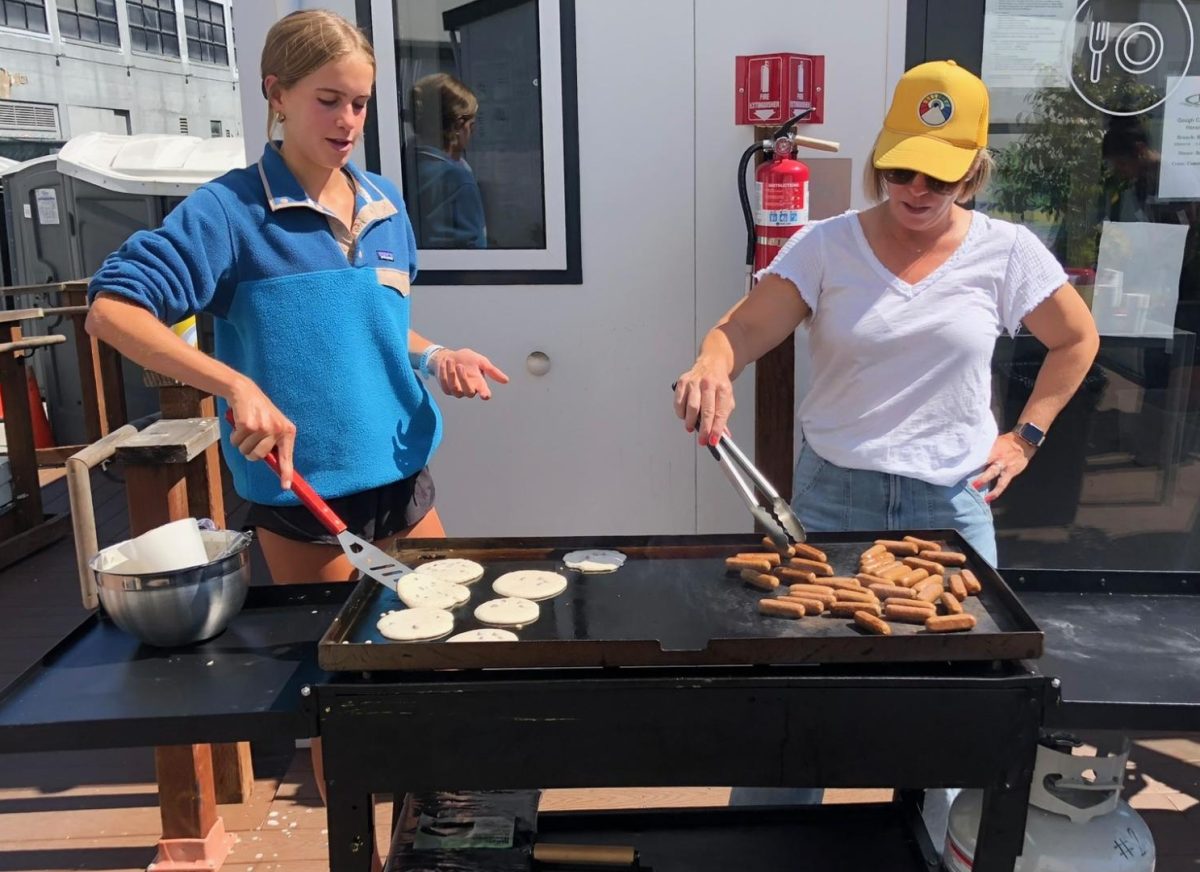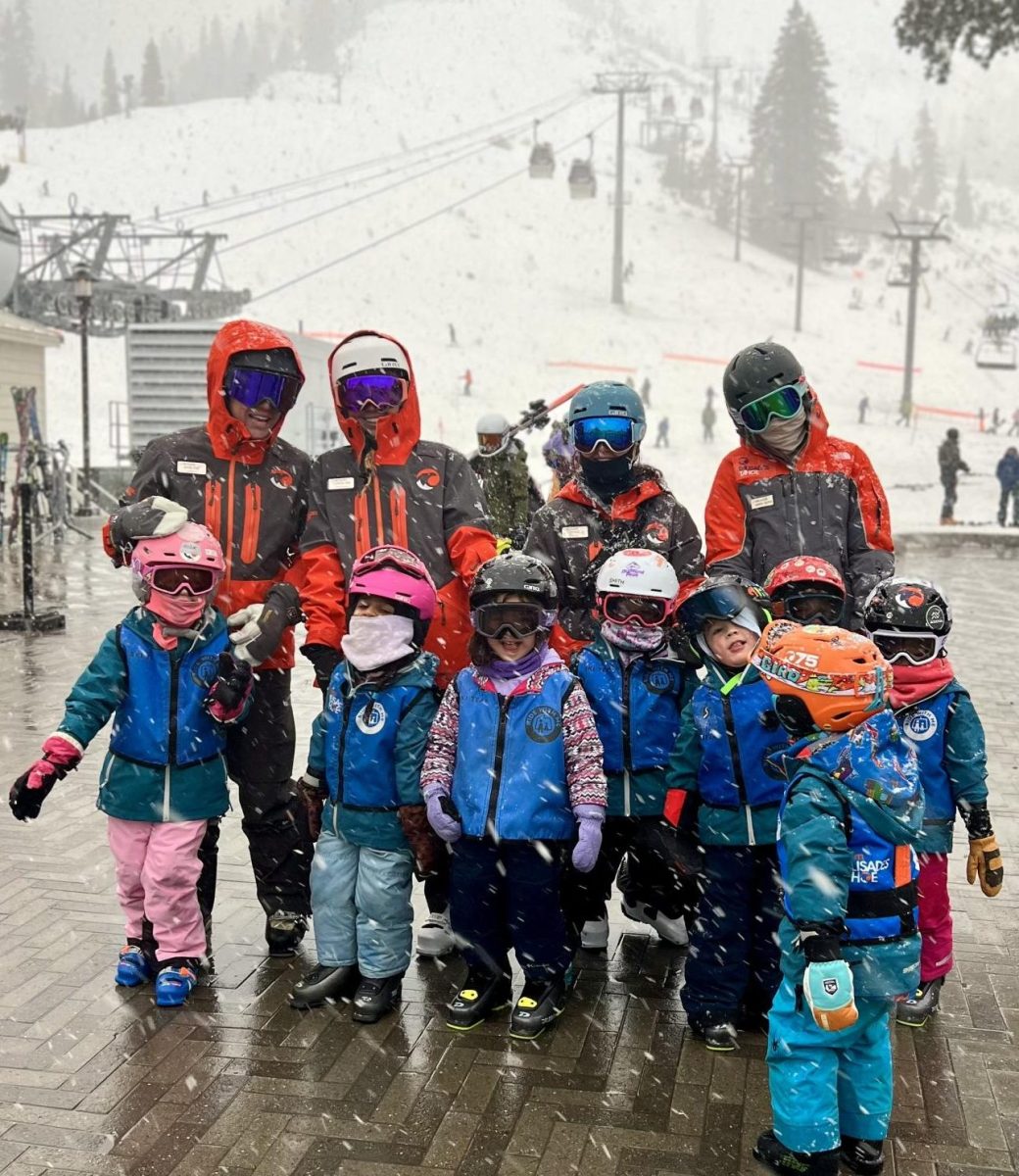Award-winning journalist and Redwood alumni Mark Fainaru-Wada has left his mark on Marin and throughout the United States by devoting his life to uncovering conflicts among different sports, most notably baseball, football and track and field.
Fainaru-Wada began his journalism career with the Bark before heading to Northwestern University, where he wrote for The Daily Northwestern. After graduating college in 1989, Fainaru-Wada launched his career at the Knoxville News Sentinel in Tennessee, covering women’s basketball and football. By 1990, Fainaru-Wada had moved to Los Angeles, where he worked for the Los Angeles Daily News. There, he covered the then-California Angels, tying back to his Redwood baseball roots. In 1997, his career led him back to the Bay Area, working for the San Francisco Examiner, and in 2000, he joined the San Francisco Chronicle. Eventually, in 200,7 Fainaru-Wada found his home at ESPN, where he has since worked as an investigative reporter.

“In 2007, ESPN was looking to create an investigative unit, and I got asked to join it. Since then, I have been working on the scene at ESPN and doing investigations for the website and television, making videos and so on,” Fainaru-Wada said.
Working for several publications has helped Fainaru-Wada develop as a writer. He attributes much of his success to his early writing days before working at ESPN.
“I’ve worked at several places, and going step-by-step through different newspapers has helped me [become] the journalist I am today,” Fainaru-Wada said.
Co-writing “The League of Shadows” with journalist Lance Williams in 2004, Fainaru-Wada exposed the Bay Area Laboratory Co-operative (BALCO) steroid scandal involving notorious steroid user Barry Bonds of the San Francisco Giants.
“I was working at [the San Francisco Chronicle] when BALCO broke, and I got assigned to look into the story. It led to a massive series of reporting years with Williams, and we covered [the scandal] for several years,” Fainaru-Wada said.
Senior Jack Gurley, a varsity baseball player, listened to Fainaru-Wada speak at a fundraiser that kicked off the 2025 baseball season. At the event, Fainaru-Wada spoke to the freshmen and varsity teams about his experiences in journalism and baseball at Redwood.

“I read [Fainaru-Wada’s] take on Bonds. It was really well written and made me realize how he bettered the game of baseball by exposing the steroid era,” Gurley said.
Fainaru-Wada gained an interest in investigative news pieces, which required a certain skill set that playing baseball at Redwood incidentally helped him develop.
“I collaborate with other people—the stories are team projects,” Fainaru-Wada said. “Baseball taught me to work with other people and get better at what I do from watching and listening to other people and seeing how they work.”
Gurley admires that Fainaru-Wada was able to connect baseball to his experiences as an investigative reporter.
“I thought it was super cool that [Fainaru-Wada] based a lot of his work on the love he has for baseball. He grew up idolizing the baseball players for Redwood and the coaches and was able to stick with baseball and write about it,” Gurley said.
Fainaru-Wada attests many of his journalistic skills not just to baseball but also to his time reporting for Bark and deriving influence from his advisers.
“I am the journalist I am today because of Sylvia Jones and Donal Brown, who were the advisers of Bark when I was in school. They taught me how to be a reporter and have a passion [for journalism],” Fainaru-Wada said.
Former baseball teammate Tom MacDonald grew up playing with Fainaru-Wada, the two spending countless hours on the field together.
“It’s been a long time since we played baseball together, and even though [Fainaru-Wada] was a year older than me, he was a great stand-up guy, a real team player, [who] got along well with everybody and was extremely bright,” MacDonald said.
Even long after the two played baseball together, MacDonald kept up with Fainaru-Wada’s journey as a reporter.
“He didn’t know he would get to where he is now, but you could tell he was going to be successful,” MacDonald said.
Fainaru-Wada has worked alongside his older brother, Steve Fainaru, who is known for being a Pulitzer Prize finalist in 2006 and winning a Pulitzer Prize in 2008 for his coverage of the Iraq War at The Washington Post.
“I worked with my brother a lot. [Working on] stories related to football and brain damage [together] was really rewarding because [my brother] is an incredible reporter and my best friend,” Fainaru-Wada said.
Fainaru-Wada’s investigative work has notably developed over the years as he has devoted himself to uncovering the truth about several sport-related stories.
“One of my favorite stories was with a colleague of mine, Mike Kessler, where we revealed a track coach who had been abusing boys and young men for four years. That story ended up landing the coach in prison,” Fainaru-Wada said. “It felt really gratifying to make a difference for the victims who had the courage to talk to us.”
As a reporter, Fainaru-Wada believes that his purpose is to report on what is happening behind the scenes in the sports world. Now, having been in the journalism scene for over 40 years, Fainaru-Wada has accumulated numerous awards attesting to his brilliance and talents as an investigative reporter. In his time, Fainaru-Wada received the George Polk Award, Edgar A. Poe Award, Dick Schaap Award for Outstanding Journalism and Associated Press Sports Editor Award.
“Being able to chase your passions is something that I feel is really important to do,” Fainaru-Wada said. “I am happy where I am [as a reporter], and I look forward to making more of an impact [locally and beyond].”








